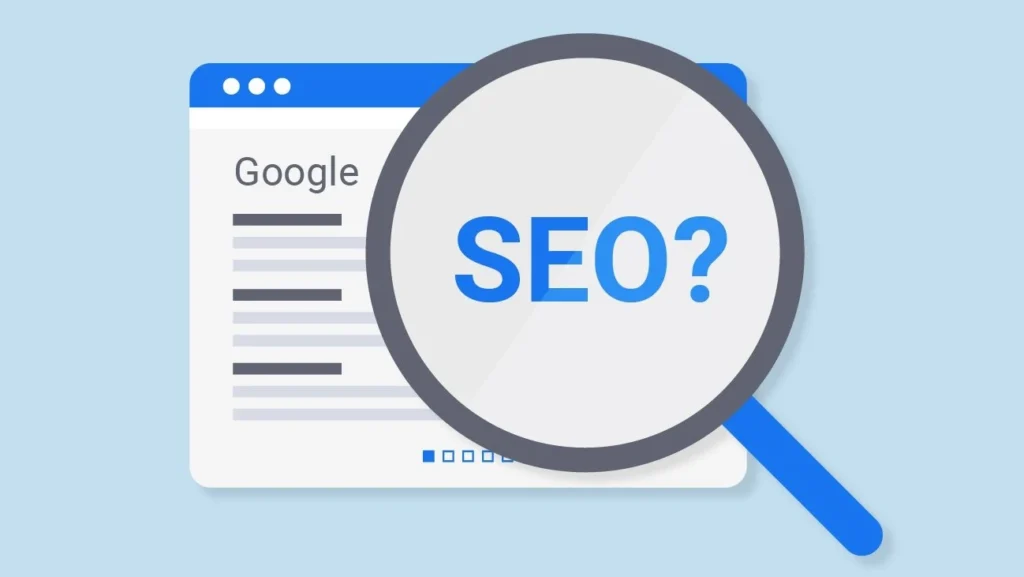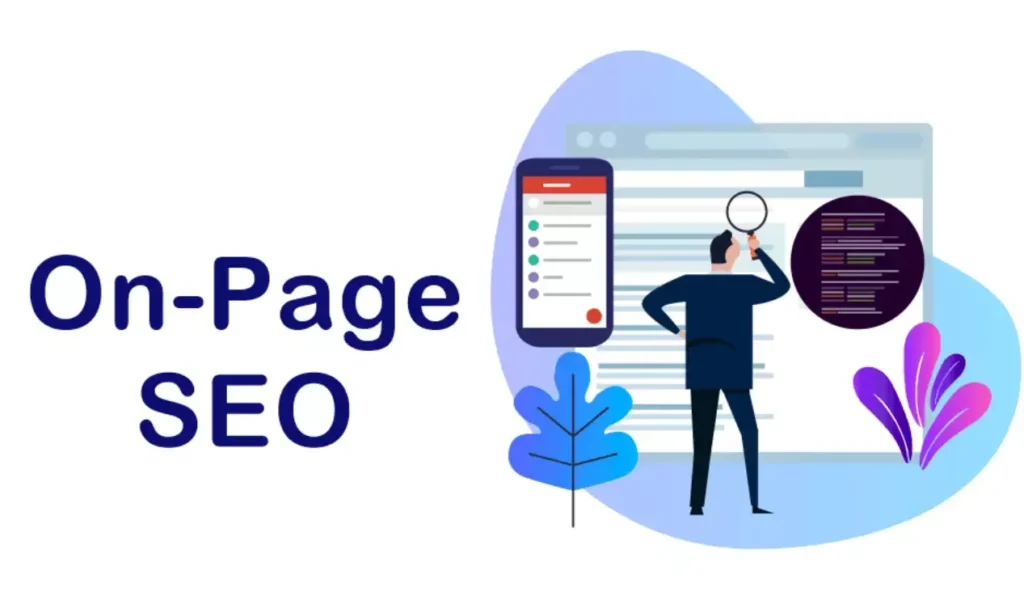In today’s digital age, SEO (Search Engine Optimization) plays a crucial role in digital marketing by enhancing a brand’s online presence and visibility. As consumers increasingly turn to online platforms for transactions, purchases, and entertainment, having a strong online presence has never been more significant. Brands that effectively execute an organic SEO strategy stand out more frequently and prominently, gaining a competitive edge. The rise of AI and other technological innovations is reshaping SEO and digital marketing, making it essential for brands to blend these technologies with their SEO efforts to remain relevant. The COVID-19 pandemic accelerated the shift of consumer behavior towards digital channels, emphasizing the need for businesses to optimize their online visibility. As technological advancements and changing consumer behaviors continue to evolve, a robust SEO strategy has become indispensable for navigating the modern marketing ecosystem.
What is SEO?
SEO, or Search Engine Optimization, is the practice of boosting a website’s visibility in search engine results pages (SERPs) to increase its organic traffic. Search engines work by crawling the web with bots to discover and index new content. Once indexed, algorithms rank this content based on relevance and quality to deliver the most pertinent results to users’ queries. SEO encompasses various strategies, including on-page and off-page techniques. On-page SEO involves optimizing elements within a website, such as content, meta tags, and site structure, while off-page SEO focuses on external factors like backlinks and social signals that contribute to a site’s authority and credibility. Together, these practices help search engines understand and prioritize your website in search
1. Increases Organic Traffic
Organic search traffic refers to visitors who arrive at a website through unpaid search results, driven by effective SEO strategies. SEO helps attract targeted visitors by optimizing a website to align with search engine algorithms, thereby increasing its chances of appearing in relevant search results. Unlike paid traffic, which comes from advertisements, organic traffic is earned through quality content and technical optimization. Google, holding a dominant share of the search market, plays a critical role in maximizing visibility, making it essential to follow its SEO guidelines. While other search engines like Yahoo, Bing, and DuckDuckGo contribute to overall visibility, Google’s prominence, including its role as the most visited website and a leading email provider, underscores the need for strong visibility on its platform. Additionally, with YouTube as the second most-used search engine, optimizing for Google and YouTube can significantly benefit brands. Quality SEO practices and a high-quality website are essential for achieving and sustaining visibility across search engines.
2. Builds Credibility and Trust
High-ranking websites are often perceived as more credible due to their prominent position in search engine results, which is influenced by factors such as quality content and backlinks. Quality content and authoritative backlinks play a crucial role in building trust and establishing a brand’s credibility over time. User experience (UX) is also vital, as a well-designed website that offers a positive UX helps in representing a reputable brand and retaining visitors. Building trust and authority is a gradual process, much like nurturing real-life relationships, and the ongoing AI revolution makes it both more challenging and crucial. Adhering to Google’s E-E-A-T (Experience, Expertise, Authoritativeness, and Trustworthiness) guidelines is essential for successful content creation and SEO. An experienced SEO professional focuses on laying a strong foundation of trust and credibility, understanding that effective SEO practices not only enhance visibility but also contribute to a brand’s overall reputation. Brands that consistently publish high-quality content and maintain a robust SEO strategy across multiple channels are more likely to be discovered and succeed in search engine rankings. Ultimately, authentic engagement and a commitment to quality are key to establishing lasting authority with both consumers and search engines.
3. Cost-Effectiveness
SEO, when compared to paid advertising, offers distinct long-term benefits and should be viewed as an ongoing investment rather than a one-time expense. Unlike paid ads, which provide immediate but short-lived visibility, SEO efforts build lasting value by improving organic search rankings and driving targeted traffic over time. While SEO requires an investment of time and resources, it is relatively inexpensive compared to other marketing expenses, and the potential payoff in terms of increased profitability can be substantial. Effective SEO implementation not only enhances a brand’s visibility but also contributes directly to its overall success and bottom line. As a scalable and measurable strategy, SEO can adapt to a business’s evolving needs and provide ongoing benefits, making it a cost-effective choice compared to many other marketing strategies. By continuously investing in SEO, businesses can enjoy sustained advantages and a greater impact on their long-term growth and profitability.
4. Better User Experience
SEO increasingly focuses on optimizing user experience (UX), including aspects like mobile-friendliness and site speed, which play a critical role in search engine rankings. A better user experience leads to higher engagement, making UX a top priority for marketers aiming to improve organic rankings and visibility. Google has developed sophisticated methods to assess both positive and negative user experiences, and its Page Experience Update underscores the importance of delivering high-quality customer interactions. Websites that prioritize UX are more likely to succeed in search engine rankings and attract users, while those that fail to meet customer expectations risk losing out to competitors. Google’s emphasis on UX aligns with its broader goal of enhancing customer satisfaction by providing quick and easy access to information, often directly on the search engine results page (SERP). As Google continues to evolve its tactics, brands must adapt their SEO strategies to ensure they maintain traffic and engagement. Effective SEO leverages a positive user experience as a key factor in driving long-term success and benefiting the brand.
5. Local SEO Drives Traffic and Sales
Local SEO is crucial for businesses, especially small and medium-sized ones, as it focuses on optimizing digital properties for specific geographic areas to drive foot traffic to physical stores. With the shift to a mobile-first mindset among users and search engines, local search has become essential for ensuring that customers can easily find a business and move closer to making a transaction. Local SEO efforts target specific neighborhoods, towns, cities, regions, and even states, helping brands communicate their message effectively at a local level. Google My Business plays a vital role in local SEO, allowing businesses to manage their online presence and enhance local engagement. SEO professionals optimize the brand’s website, content, local citations, backlinks, and regional listings relevant to the business’s location and industry. Additionally, optimizing the brand’s Knowledge Graph panel, Google Business Profile, and social media profiles can further boost local visibility. Managing user reviews on platforms like Google, Yelp, Home Advisor, and Angie’s List is also critical for building trust and credibility. For effective local optimization, following local SEO tips from reliable sources like Search Engine Journal (SEJ) is recommended.
6. Competitive Advantage
SEO is a powerful tool that helps businesses stay ahead of their competitors by ensuring they are visible, relevant, and appealing to their target audience. Regularly updating and optimizing content is essential for maintaining this competitive edge, as it keeps a brand aligned with the latest SEO trends and algorithms. Identifying and analyzing competitors’ strengths and weaknesses allows businesses to refine their strategies, capitalize on opportunities, and address gaps. Managing online reputation, ensuring a fast-loading, mobile-friendly site, and creating quality content all contribute to a positive user experience, which is crucial for success. By targeting every stage of the buying funnel, SEO not only increases brand awareness but also generates more leads, sales, and market share, positioning businesses to outpace their competitors.
7. SEO is Quantifiable
Unlike paid search, SEO doesn’t offer a straightforward calculation of return on investment (ROI), but with proper tracking and analytics, almost everything can be measured. The challenge lies in connecting various actions and outcomes, as there’s no definitive way to correlate all activities directly. However, as tracking and attribution technologies continue to improve, they will better support SEO efforts and provide more accurate performance measurements. It’s essential to understand how specific SEO actions are intended to impact growth, even if direct connections are sometimes difficult to establish. Skilled SEO professionals focus on driving improvements that make it easier to link actions to results. Brands are increasingly interested in tracking their digital performance over time, especially in SEO, to gain insights into past, current, and future trends. Effective tracking and reporting are key to demonstrating the success of SEO efforts to stakeholders, with data serving as an objective measure of performance—because, ultimately, “the data never lies.”
8. Long-Term Strategy
SEO can yield noticeable results within the first year of implementation, and many of these effects can be long-lasting. As the market evolves, staying competitive in SEO requires closely following trends and adapting strategies accordingly. Even websites that haven’t undergone extensive SEO optimization can benefit from basic best practices, especially if they already offer a decent user experience. The more time, effort, and budget invested in SEO, the better a website’s chances of becoming a strong contender in its market. Just like the saying “the grass is green where you water it,” sustained SEO efforts lead to better, long-term results.
9. Insights into Customer Behavior
SEO tools offer valuable insights into user behavior by analyzing search patterns and preferences, helping businesses understand what their audience is looking for. This data is crucial for making informed, data-driven decisions in marketing, ensuring that strategies are aligned with actual consumer needs and trends. For example, by examining SEO data, a business might discover that users frequently search for a specific feature or service that they don’t currently offer. This insight could lead to the development or enhancement of products and services, better meeting customer demands and ultimately driving business growth.
10. Supports Other Marketing Channels
SEO seamlessly integrates with content marketing, social media, PPC, and other digital strategies, enhancing the effectiveness of each. By complementing these efforts, SEO ensures that content is optimized for search engines, increasing its visibility and reach. In a holistic marketing approach, SEO plays a pivotal role by driving organic traffic, supporting paid campaigns, and amplifying social media efforts. This integration helps create a cohesive digital presence that maximizes brand exposure, engages target audiences, and boosts overall marketing performance.
In today’s fast-paced digital landscape, investing in SEO is crucial for long-term growth. The role of SEO has expanded significantly, becoming more complex with advancements in AI and technology. New processes and shortcuts continually emerge, which can either enhance or hinder your SEO efforts. Neglecting to allocate sufficient resources to SEO throughout the year puts your business at a competitive disadvantage. To stay ahead, it’s essential to optimize your website with the help of a professional SEO expert. Regularly analyzing results, testing new strategies, and adapting to industry changes ensures your SEO remains effective. Keeping up with the latest guidelines and best practices is vital for maintaining and improving search performance. Additionally, offering unique, valuable content is crucial—if content is not original, proper citation and linking are necessary to maintain credibility. Implementing quality SEO updates will positively impact your brand’s website and digital presence, driving measurable benefits in your marketing efforts.

Krishnendu (Kriz) – Kerala’s No. 1 Freelance SEO Expert, with an MBA in HR and Marketing and extensive experience across various marketing fields, Krishnendu, popularly known as Kriz, has established himself as Kerala’s leading freelance SEO expert. Transitioning into digital marketing, he quickly specialized in SEO, leveraging his strong knowledge of branding and digital marketing concepts. Kriz has successfully managed multiple projects, helping businesses enhance their online visibility and drive organic traffic to their websites. His expertise lies in crafting strategic digital marketing and branding plans tailored to each client’s unique needs and objectives, and implementing effective optimization techniques to improve search engine rankings.



